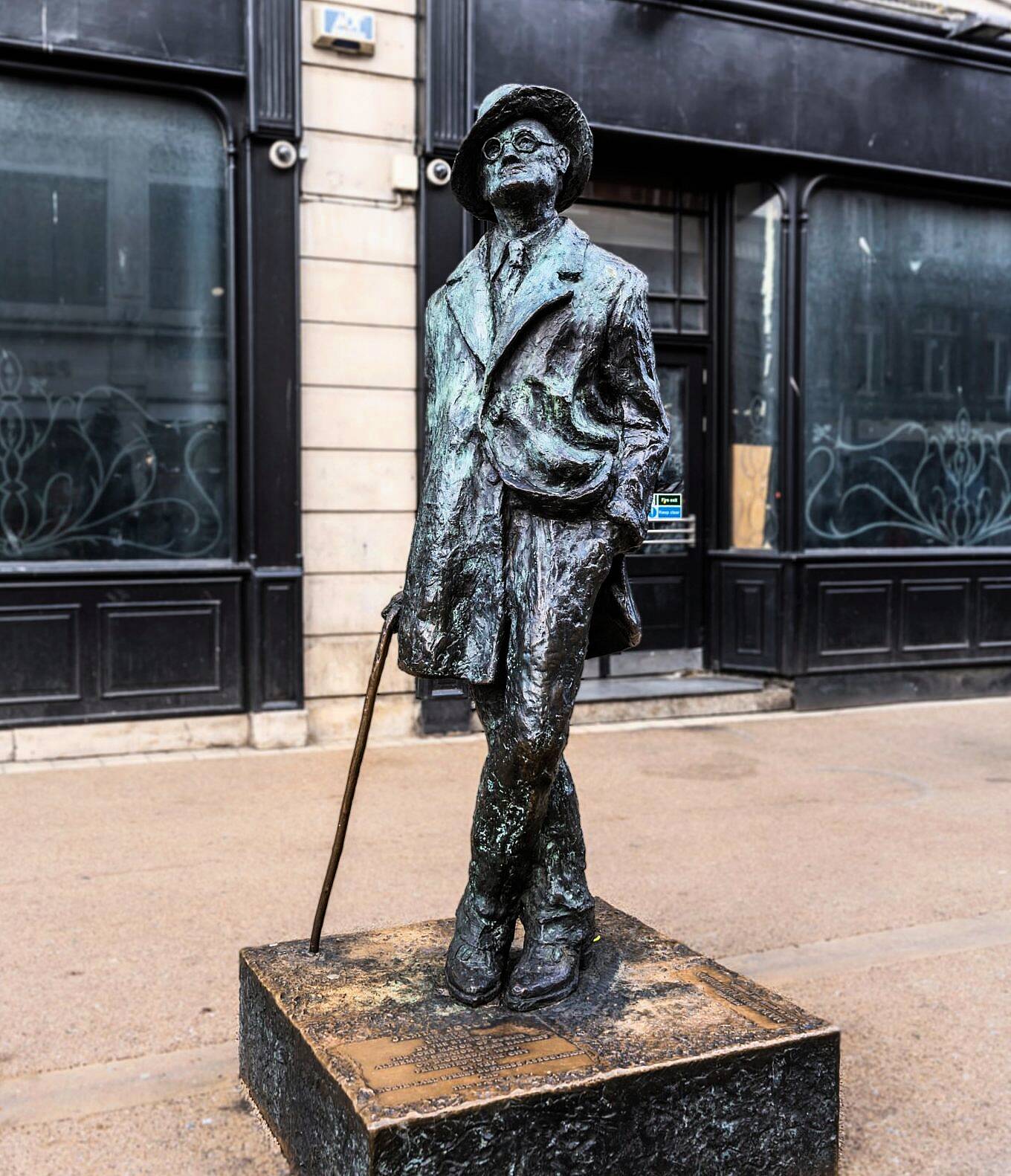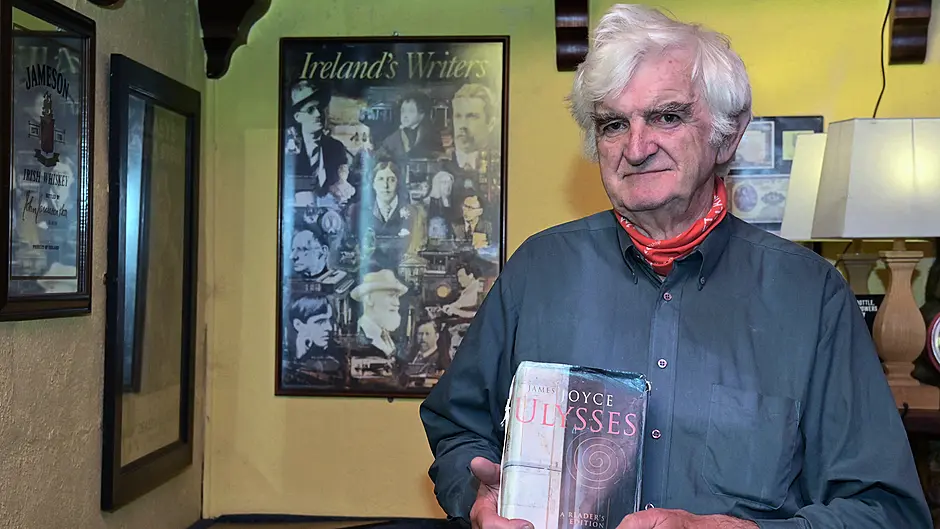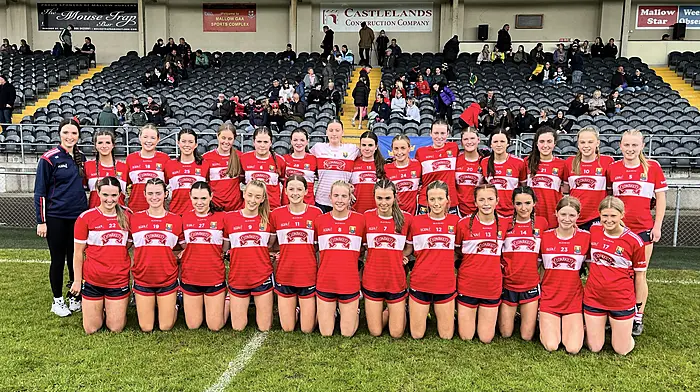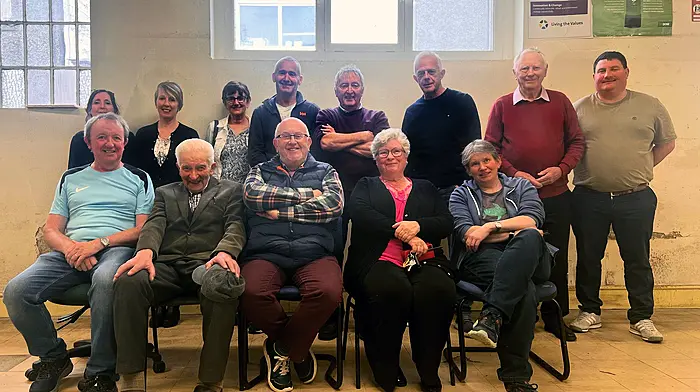Bloomsday will be celebrated on June 16th and the Joyce family connection to West Cork is being celebrated by the writer’s grandnephew, writes MARY McCARTHY
 The bronze statue of James Joyce by sculptor Marjorie Fitzgibbon in North Earl Street, Dublin. (Photo: Shutterstock)
The bronze statue of James Joyce by sculptor Marjorie Fitzgibbon in North Earl Street, Dublin. (Photo: Shutterstock)
JAMES Joyce is one of Ireland’s greatest writers, famed for works like Ulysses, Dubliners, Finnegan’s Wake, and Portrait of the Artist as a Young Man.
Joyce’s writing has inspired a celebration dating back 120 years: Bloomsday, celebrated on June 16th each year. This tradition is celebrated by the writer’s grandnephew, Philip Joyce, who lives in Clonakilty.
‘This is the anniversary of June 16th, 1904, when Joyce got engaged to Nora Barnacle, and is mentioned in Ulysses. Bloomsday is good for the spirits and, especially, the spirits of the people of Cope in Clonakilty. It’s for them I do it,’ said Philip.
Over the years, the literary club has met in De Barra’s on this day. Celebrations are the same as in Dublin with period costumes.Residents from Cope arrive dressed up. It is an occasion that isn’t only about food and beverages, but also about hearing little pieces read by them from Ulysses. This year, instead of taking place in one venue, other locations are involved in Clonakilty.
‘Banks, pubs, the library, and hotel,’ says Philip. ‘In the early 1900s, what was normal about Joyce was that he thought differently. After going into exile in northern Italy with his fiancée, they made their home in Trieste. What would have been unusual in those days is that he didn’t make an honest woman of Nora. It is public history that they married years later in a civil ceremony. They had two children, Georgio and Lucia,’ he said.
When living in Dublin, he wrote both poetry and articles. In Trieste, Joyce taught English for many years before moving to Paris. It was here he took his writing seriously.
‘He wasn’t afraid of expressing opinions about human life. That led to Ulysses,’ he said.
Joyce was a gifted writer, who created ideas that no one ever envisioned before, including the stream of consciousness of Ulysses. He had the stories from people his father met in the pubs. His interest in music of the day also came from his old man, a pub singer. Taught by the Jesuits, he had discipline instilled in him to write. He had a natural intent to study Greek philosophy, the old folklore of Greece, and languages such as Latin, Italian, Swiss, German, and French.
Joyce’s upbringing allowed him to see life from different points of view. His father, John Stanislaus was from Cork, and grew up in Anglesea Street, later going to secondary school in St Colman’s College, Fermoy. John Stanislaus preferred pub social life to paying bills. He met many a difficult situation growing up, including the practicality of living in nearly 30 different houses.
 Members of Cope join Philip Joyce for Bloomsday celebrations in Clonakilty.
Members of Cope join Philip Joyce for Bloomsday celebrations in Clonakilty.
Philip believes his granduncle’s ability to make connections that were part of his DNA made him stand out. There are benefits of his genius for anyone interested in his writing. Reading his works would cause most to be more perceptive about life.
‘Even though Joyce had difficulties in his relationship with the Catholic Church, one of his last publications involved a book called Chaucer ABC that celebrated the Virgin Mary.
His daughter, Lucia, was deemed to have schizophrenia. She was also very artistic. Joyce wanted her work to be published. A French monk originally wrote an old poem, and Chaucer published parts of it in old English that comprised 23 stanzas. Each began with a consecutive letter of the English alphabet. And Lucia illuminated 23 letters of the alphabet.
‘Joyce wasn’t a main priority in my life, but I grew into it.’ Philip concluded. ‘Even though I came to live in my adopted county, I am glad to know that I am in the county of origin of James Joyce’s father, the source of his material.’









